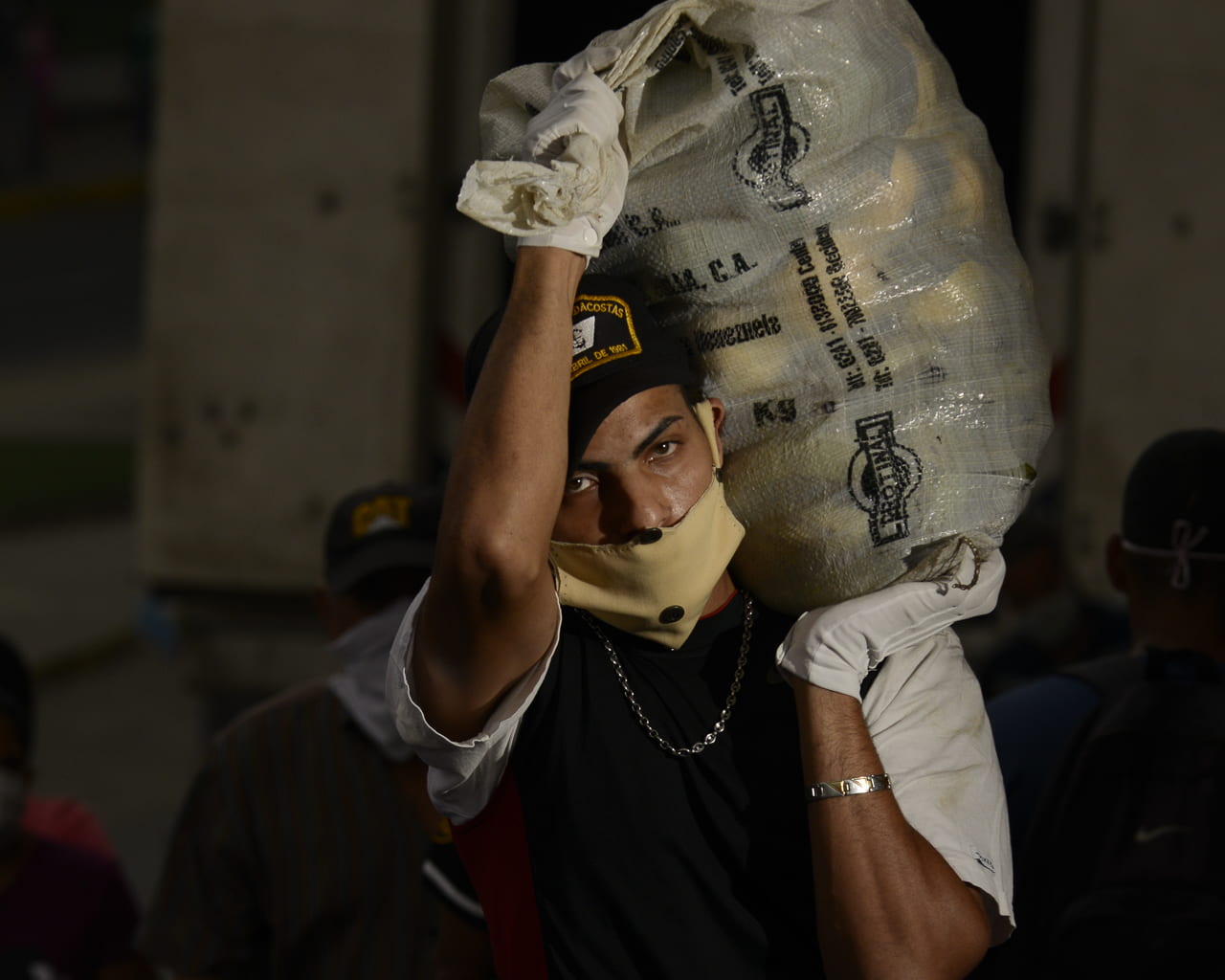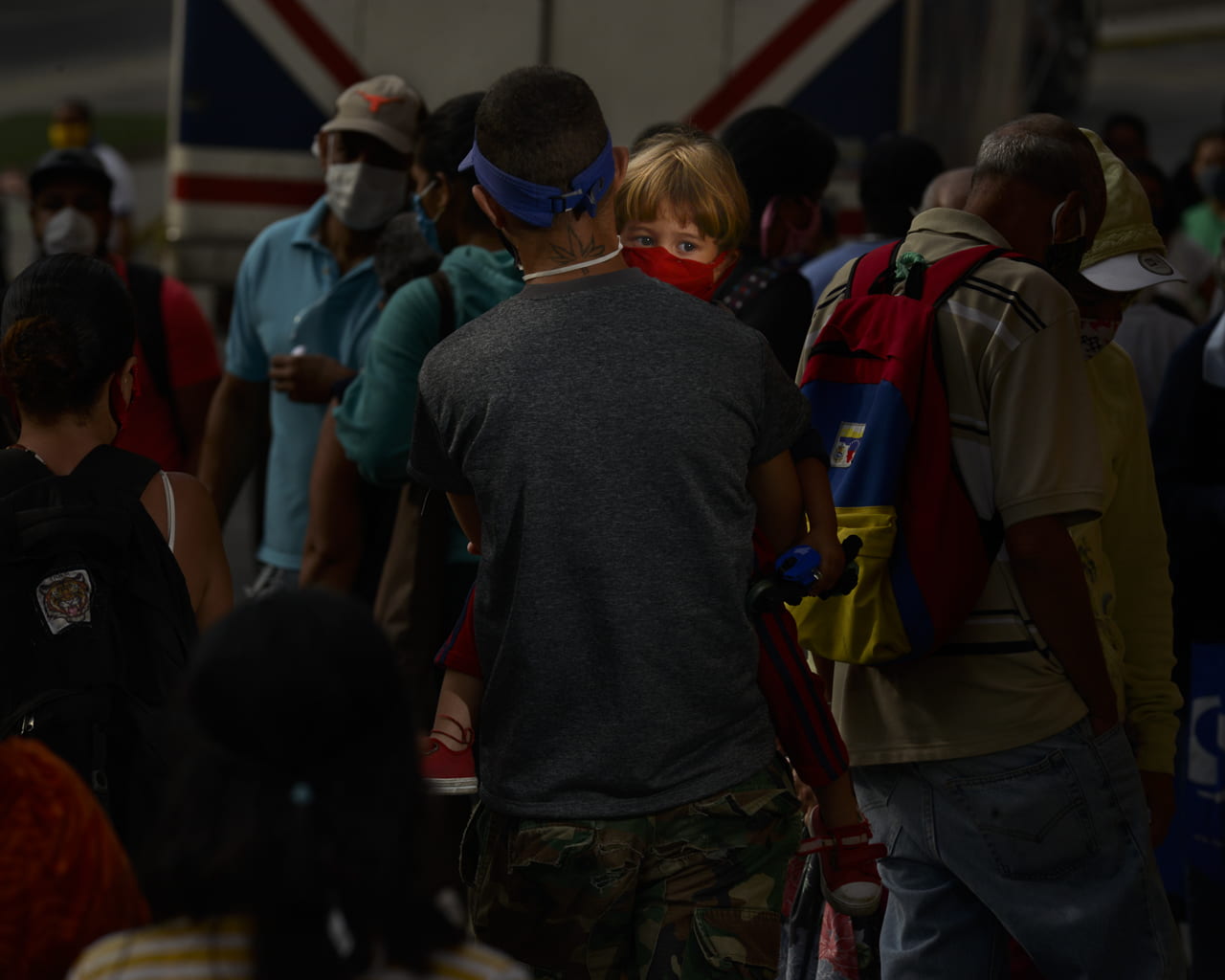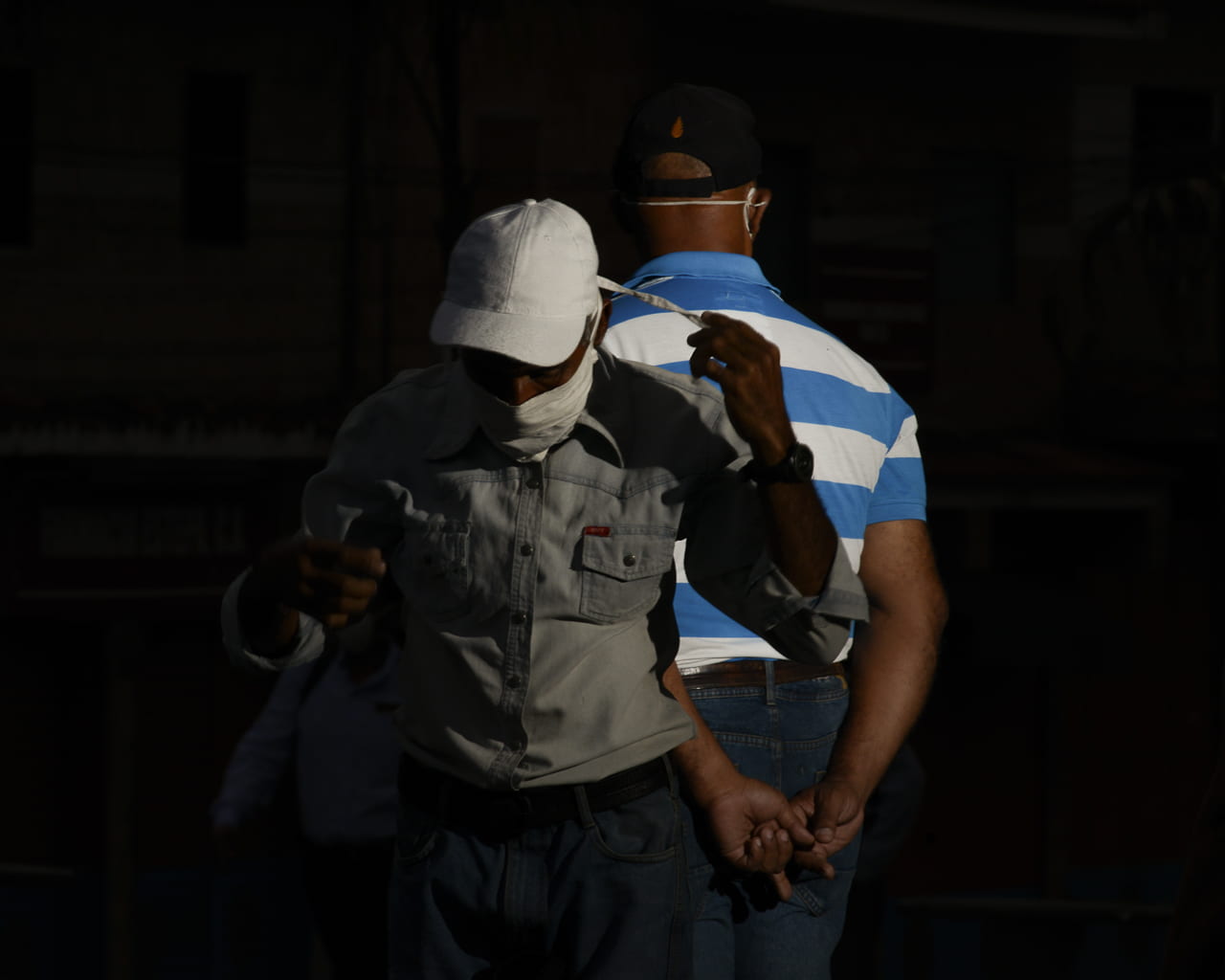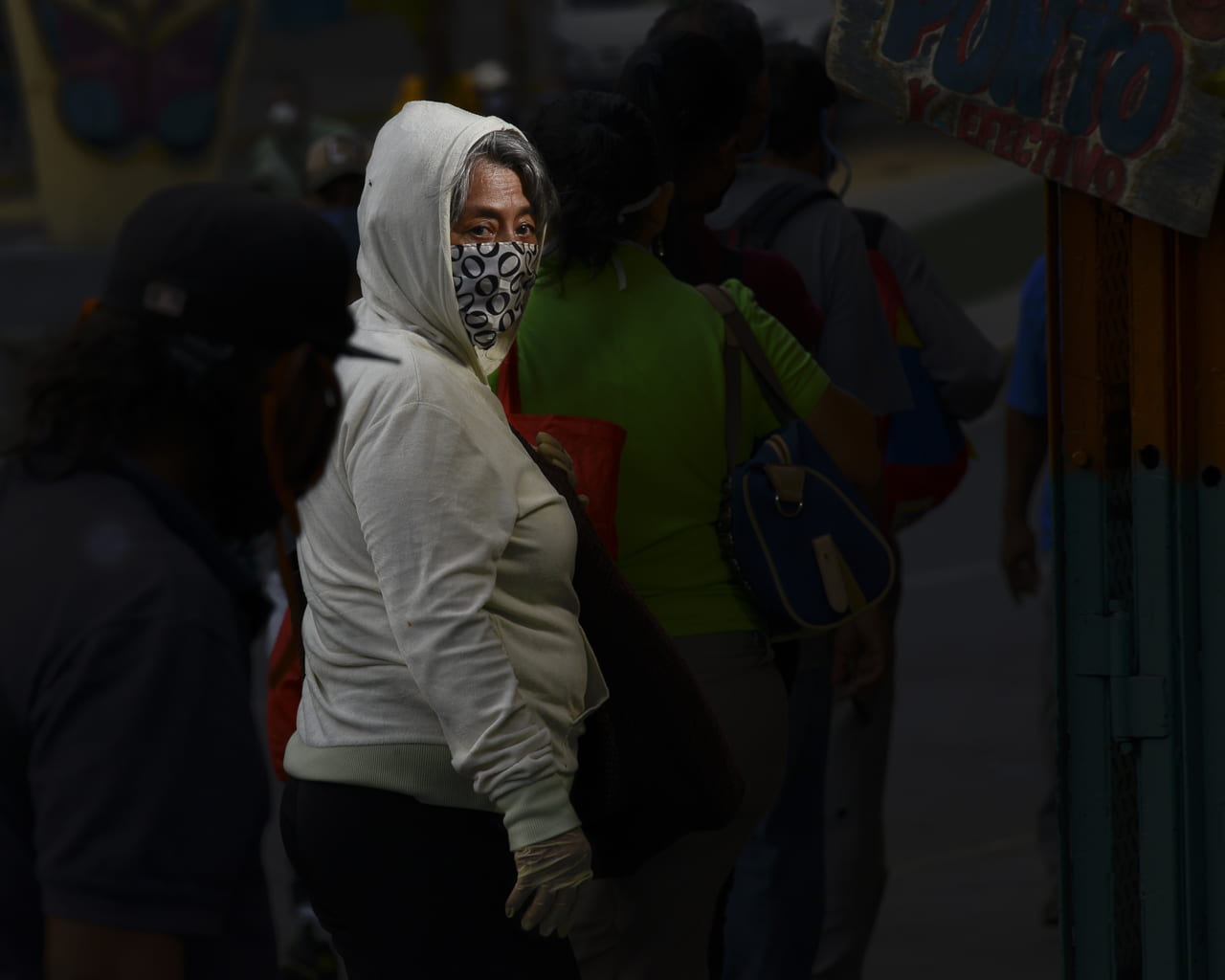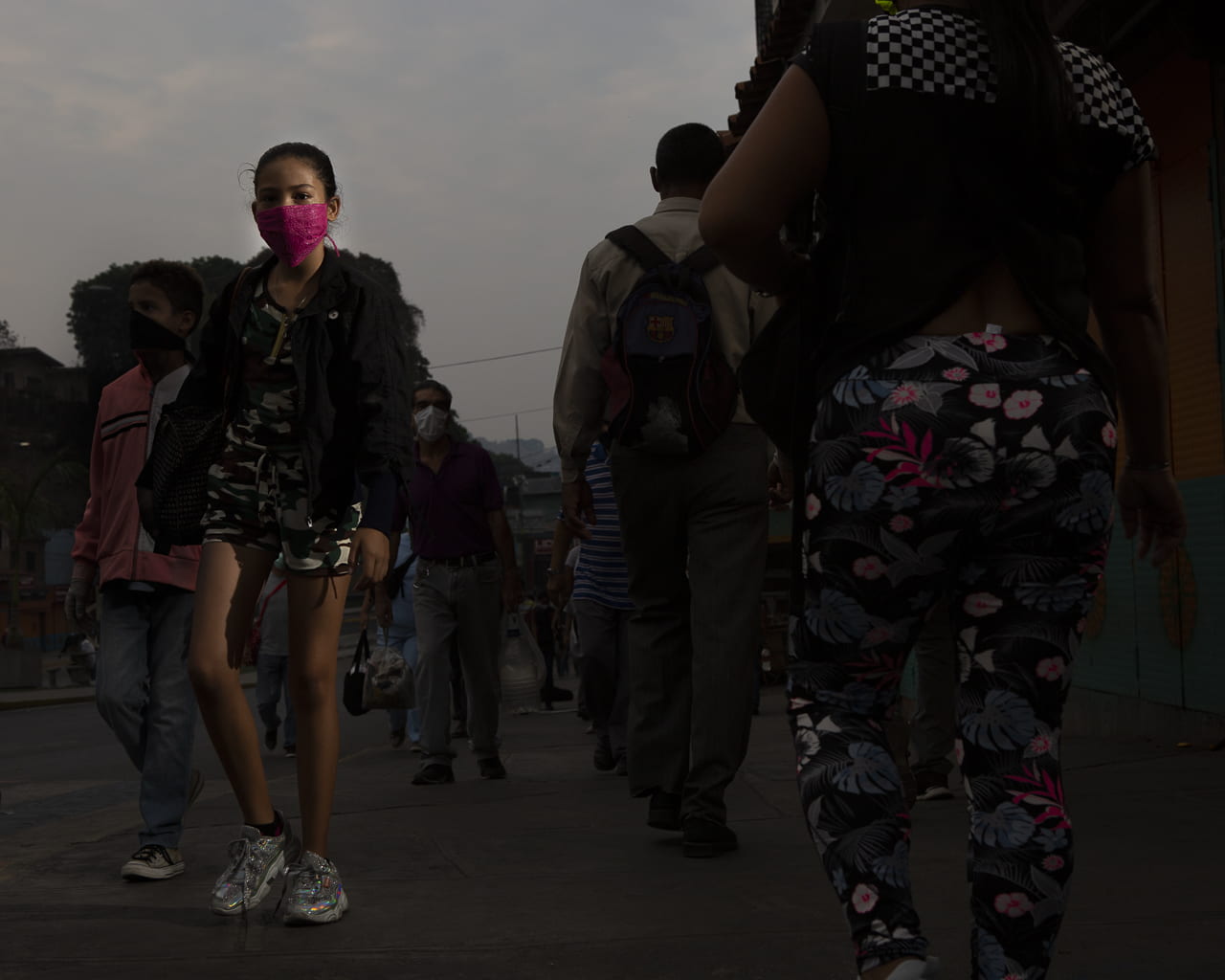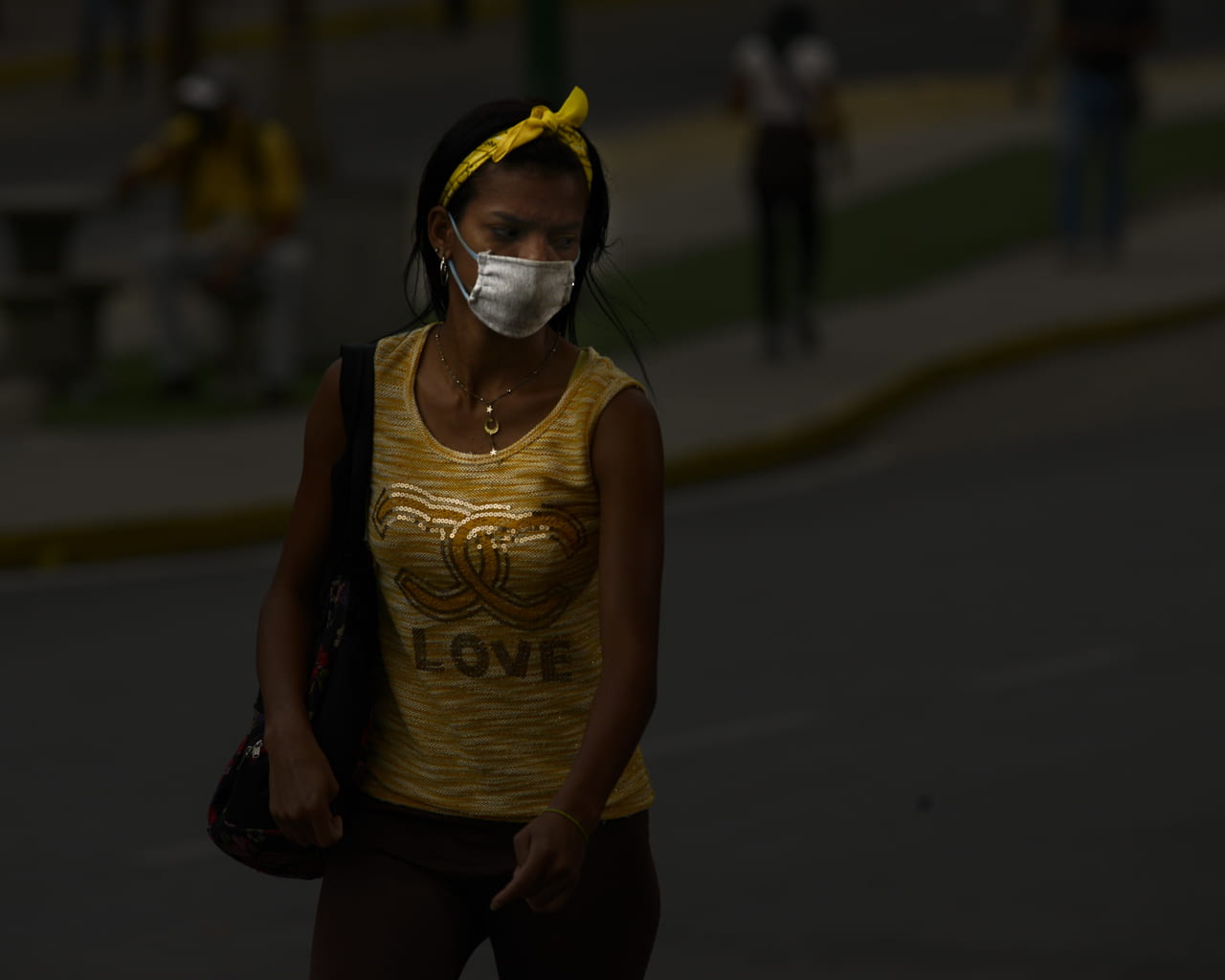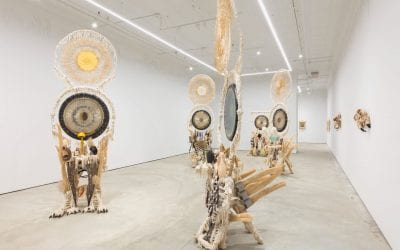We Can’t Stop
The photos of Andrea Hernández Briceno were chosen for the exhibit “Documenting the Impact of Covid-19 through Photography: Collective Isolation in Latin America,” curated in collaboration with ReVista and the Art, Culture, and Film program at Harvard’s David Rockefeller Center for Latin American Studies (DRCLAS.)
The exhibition, based on an Open Call for Photography launched in July 2020, aims to create a critical visual record of our unprecedented times so they can be remembered by future generations.
- “Platanos” April 23, 2020 Caracas, Venezuela
- “No hay colegio” April 23, 2020 Caracas, Venezuela
- “Perolero” April 23, 2020 Caracas, Venezuela
- “Mascarilla” April 23, 2020 Caracas, Venezuela
- “Voltea” April 23, 2020 Caracas, Venezuela
- “Camino” May 1. 2020 Caracas, Venezuela
- “Love” April 25, 2020 Caracas, Venezuela
Latin America has become a hotspot for Covid-19 as the number of cases rises and persists. It’s a region that brings together ideal conditions for a pandemic: lack of investment in health care systems and a dependence on informal economies. The cheapest method of prevention is social distancing, but how can people stay home if they need to go out to survive?
In Venezuela, these conditions are especially grave. What I’ve heard while making images with a telephoto and a flash in the middle of the commercial area in Latin America’s biggest slum, Petare, is: “We can’t stop”. I’ve been photographing people going to buy or sell food. Commerce is a high-risk activity during a pandemic; it requires contact and closeness. For most people there, social distancing sounds like a trend in New York and they are more afraid of hunger than the virus.
Andrea Hernandez Briceno (1990) is a photographer, National Geographic Explorer and International Women’s Media Foundation fellow based in Caracas,Venezuela. Her work has been published in Time Magazine, The Washington Post, El País and other international outlets. This project was possible thanks to the support of the Covid-19 Emergency Fund for Journalists by the National Geographic Society.
Related Articles
Brazil’s Vaccinated Democracy
In March 2021, former Brazilian president Luiz Inácio Lula da Silva, a current presidential candidate, posed a pointed question in a speech lambasting President Jair Bolsonaro’s Covid-19 response. “Where is our beloved Zé Gotinha?” Zé Gotinha is not a respected public health expert or crisis manager
Broken Land: Climate Change and Migration in Guatemala
Broken LandClimate Change and Migration in Guatemala Santos Istazuy Pérez (right) sits in meditation during a group hike and workshop at a lush farm along with fellow Guatemalans and like-minded people from around the world including Germany and Uruguay. Photo by...
The Gift of Art
My dear friend, Colombian pioneer performance artist, Maria Evelia Marmolejo, (Cali, Colombia, 1958) whom I met during the research for the exhibition Radical Women: Latin…

